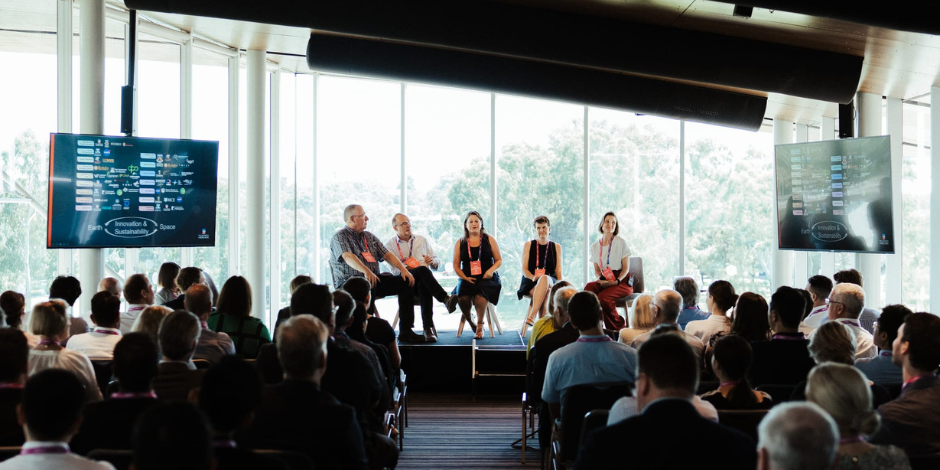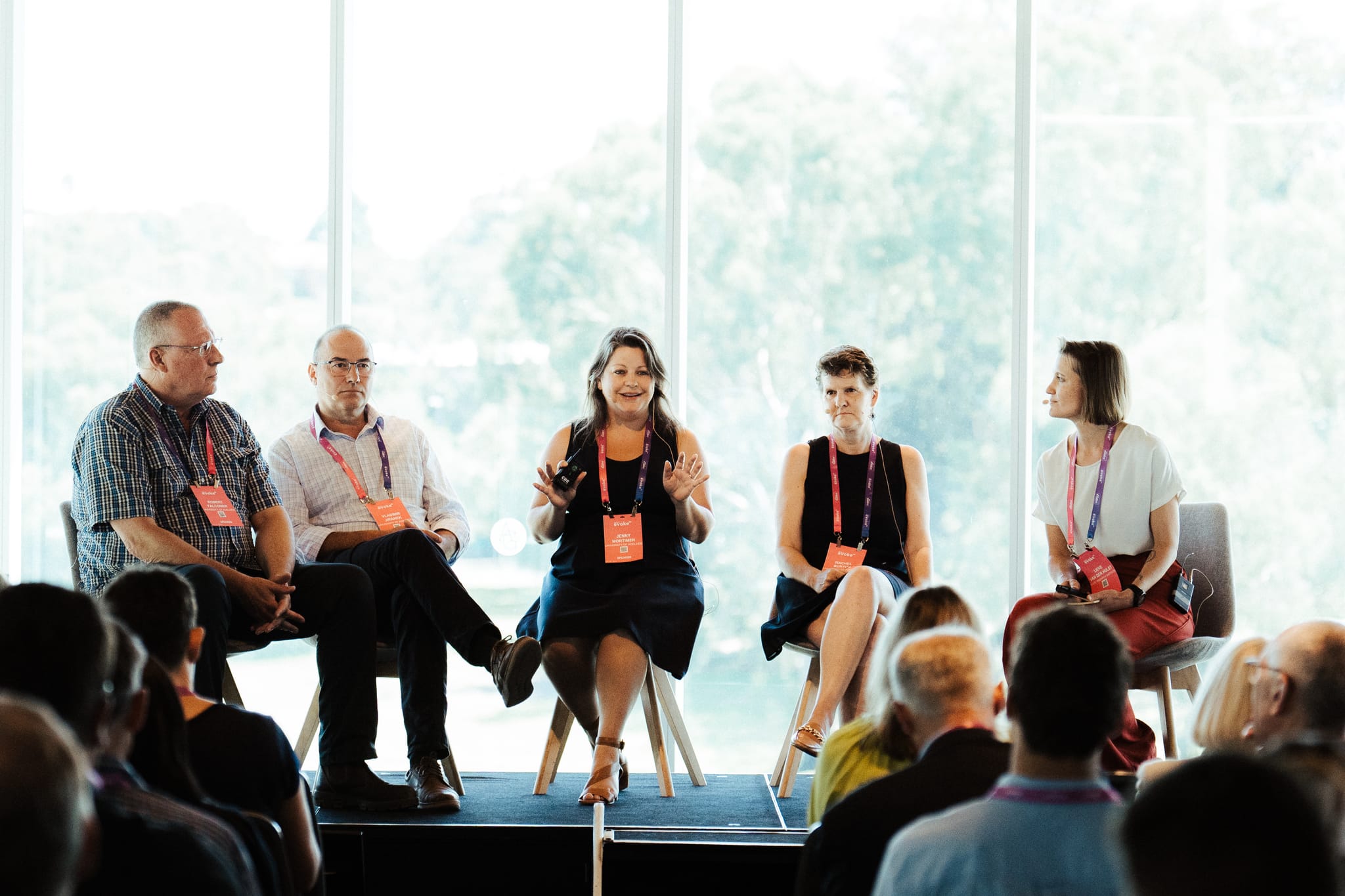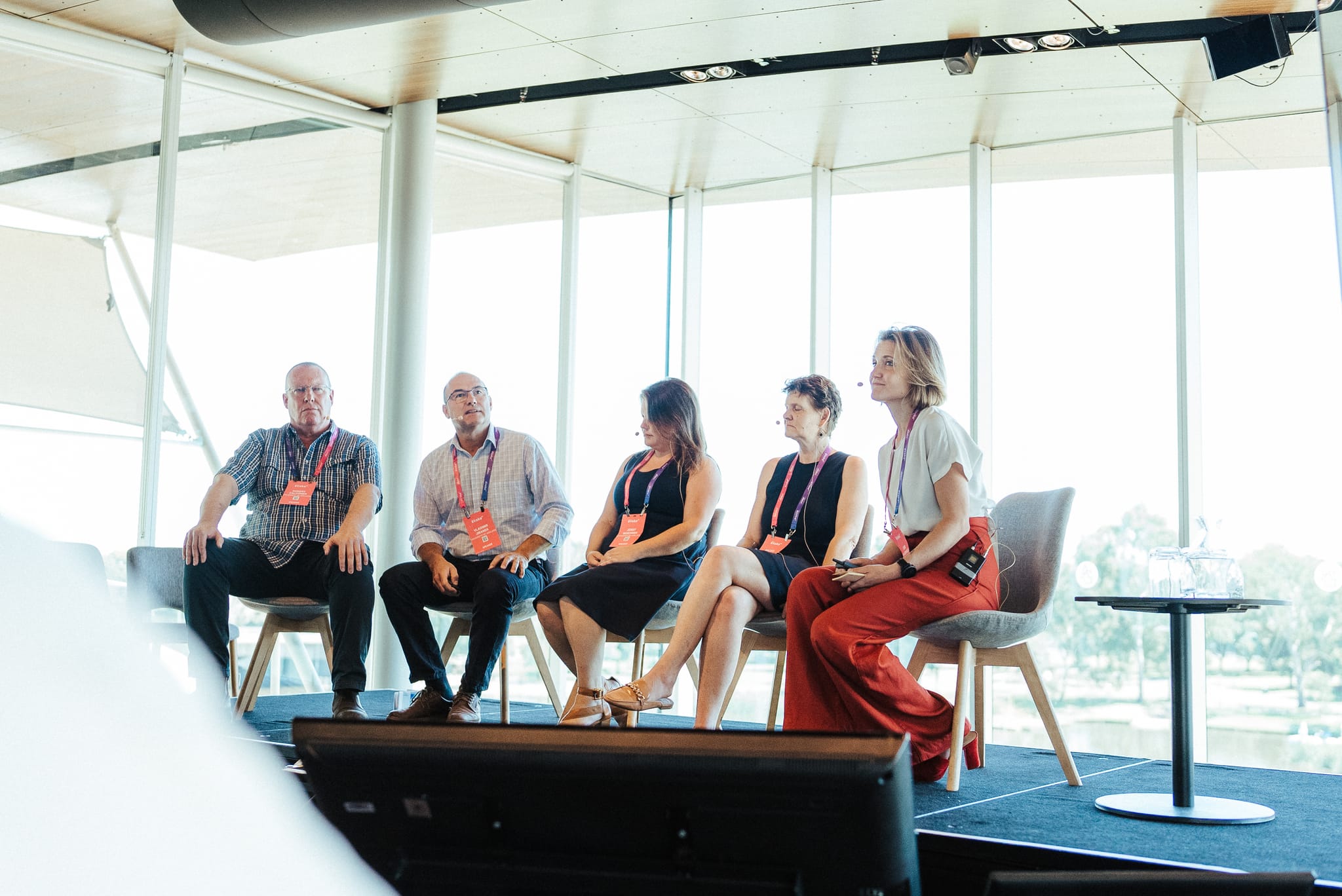Biomanufacturing for Earth, sustainability and space
Across the globe, investment and interest in the untapped potential of biomanufacturing* is at an all-time high. From Presidential Executive Orders to advance America’s bioeconomy, to multimillion-dollar funding announcements in states across Australia, governments around the world are pouring resources into the research and development needed to drive this burgeoning industry forward.

Closer to home researchers from the University of Adelaide are delving into the projects and ideas driving this revolution. From redesigning plants that will survive in space to unlocking the opportunities of wine fermentation tanks, here we highlight how four researchers from the university and their biologically-led, agricultural-based research projects are delivering a more sustainable future.
Sowing the seeds for a plant-based world
As the Head of the Food Science Department at the University of Adelaide, Professor Rachel Burton is understandably interested in the potential of plants.
Her vision involves creating a sustainable future where everything we use and build with is derived from plants.
“Plants have the potential to change the way we build, the way we farm and the way we live,” said Rachel.
In collaboration with a range of industry partners, Rachel and her team are developing innovative pathways to create multifunctional crops where the entire plant can be put to use, with no waste.
Highly sustainable and carbon neutral, these types of crops such as Plantago, chia, agave, industrial hemp and medicinal cannabis, have applications for food, fibre and building materials, as well as a replacement for plastics and medicine.
RELATED: Material growth – is there potential for farmers to produce eco-friendly packaging?
“Sustainability is something that everybody’s very passionate about at the moment and it underpins everything that we do.
“Quite a few plants that we grow, you can really only use them for one or two things. But I’m interested in plants that we can use for a lot of different things, and understanding the opportunities for Australian farmers as we scale the commercial production of more sustainable materials.”
Exploring the final frontier for sustainable agriculture
Associate Professor Jenny Mortimer is also exploring new ways to use plants, and adapt them for different needs or environments but this time in space.
As part of the Plant Synthetic Biology in the School of Agriculture, Food and Wine at the University of Adelaide, Jenny is working with Professor Matthew Gilliham on a project designed to provide astronauts with the food required for deep and long duration habitation in space.
The research delves into how they can optimise plant species to deliver enhanced nutrition outcomes, as well as the process required to sustainably grow these crops in space with minimal inputs, minimal waste, and minimal down-stream processing required.
Using synthetic biology, the crops will be redesigned to thrive in the unique environment of space, where they must be able to survive conditions including low gravity, constant light, high CO2, and constrained room to grow.

RELATED: SynBio and how to feed the next generation of space explorers with Jenny Mortimer
The benefits of this research will translate beyond space habitation, delivering a sustainable, low-waste, closed environment agriculture systems that can be used for the small-scale, local production of food (on Earth), even in remote regions unsuitable for traditional agriculture.
“Space is a fantastic system for thinking about the ultimate in sustainability,” said Jenny.
“If you are on Mars, and you’ve just got what you brought with you, how do you make that lifestyle sustainable? And it’s not just about managing to survive, but you want people to thrive in space so that they can go out and do the research and explore those systems.
“We have this opportunity to use technologies like synthetic biology to really redesign plants for these types of environments.
“And that’s a really fantastic way of … thinking about sustainability here on Earth. We can take those same types of questions, and the learnings that we have out there and apply them back to things like vertical farming.”
Unlocking infrastructure to beat biomanufacturing bottleneck
As a wine microbiologist, Professor Vladimir Jiranek is also working to enhance agricultural processes to improve outcomes for the wine industry. He’s currently focused on isolating and optimising microbes for fermentation as a part of the winemaking process, but sees opportunities to capitalise on the role fermentation plays in biomanufacturing, and the production of alternative proteins.
“Things are exploding in the alternate protein space, there’s been a huge amount of investment, but possibly the biggest challenge (in this area) is fermentation,” said Vladimir.
“Fermentation is actually quite important in alternative protein products, not necessarily just for the generation of the product, but in that fermentation processes that are used to produce enzymes, flavourings, etc, that can be used in some of these plant proteins or alternative protein sources.
RELATED: Animal-free fermented fats and oils give alternative proteins a kick of flavour
“But getting access to fermentation facilities is a big bottleneck for the [alternate proteins] industry.

Vladimir sees an opportunity for wineries to leverage their facilities and expertise, to help alternative protein companies produce food-grade materials for the alternate protein industry. But notes it is not without caveats.
“It depends on what the product is, depends on the organism, depends on the conditions and so forth. But in the very, very short term, it provides capacity. If companies are starting with a greenfield site and building an entirely new, custom-designed fermentation facility there may be a delay of two or three years.”
Scaling up for commercial biomanufacturing
The end game for any of these research projects is to deliver a solution that can be commercially implemented at scale for the benefit of the community.
As a Professor of Bioprocess Engineering, Robert Falconer understands that this all comes down to developing the right process.
He has been involved in the conversion of processes from laboratory-scale to commercial-scale and is currently looking at the use of plant proteins for human nutrition and for industrial processes.
“We’ve just set up a new laboratory with aerobic fermentation capability. This has advantages in that it is a lot more efficient than anaerobic fermentation, so we can control the oxygen content, pH temperature, and have sort of highly controlled system that we can then scale up to the large scale,” said Robert.
“At the moment we’re working on isinglass, which is a fining agent using the brewing and wine industries to clarify the product. It’s made from the swim bladders of fish, and it’s quite expensive.
“However, there’s proteins in the plant world that can do that job just as well, so we’re looking at working that up as a product.
“The nice thing about being an engineer is we can work out what the process is going to look like, then we can model it and work out whether it’s likely to be profitable or not.”
evokeAG. 2023 Gold Partner, The University of Adelaide presented a workshop at evokeAG. in Adelaide. Rachel, Jenny, Vladimir and Robert presented on their work and the opportunities for Australian agriculture and food manufacturing. You can listen to the session here.
Save the date for evokeAG. 2023 to be held on 20-21 February 2024 in Perth, Western Australia. Register for updates on event news and ticket sales here.
* biomanufacturing refers to using living organisms and cells to produce molecules or other biological materials for products such as medicines, food, fuel and fibres.
